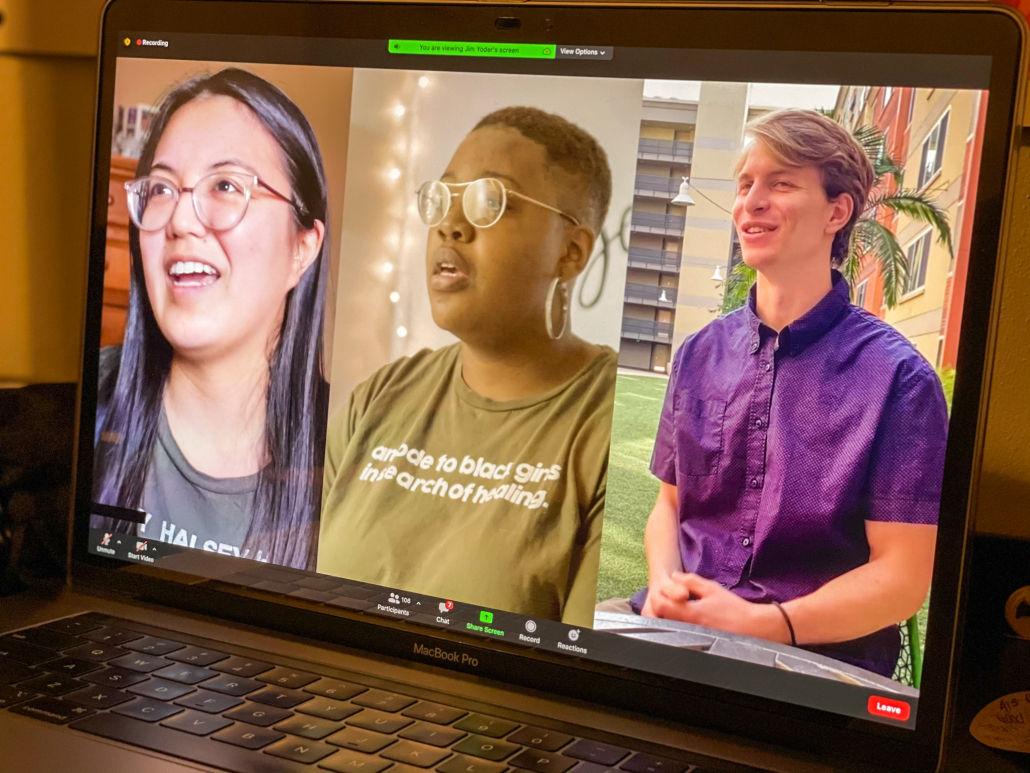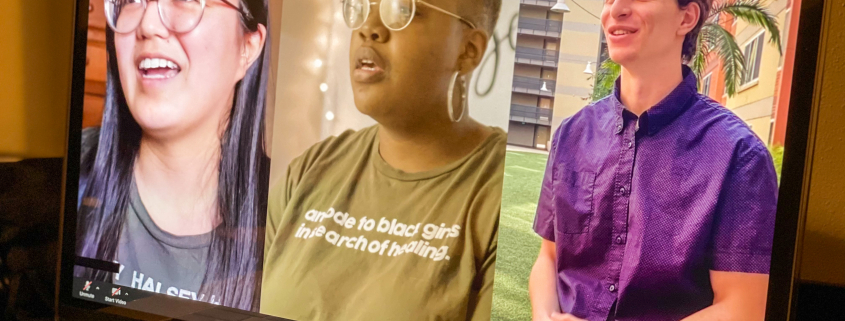Student documentary grounds the chaos of 2020

“Two Paths, One Direction” brought two schools together for one goal: to create a documentary that explains how students at USC and Prairie View A&M University have dealt with the pandemic, historical racial justice protests and the 2020 presidential election.
The film features the voices of many students from USC and PVAMU and offers insight into how the events of 2020 affected the personal lives of students. It localizes these larger issues and presents it in a format that is both visually appealing and informative.
The opening scene of the documentary features a variety of news segments about 2020 from different news organizations, but they are quickly cut off and replaced by footage from the perspective of students.
The documentary shows parties on both campuses that are then juxtaposed by footage of the stark reality created by the coronavirus. Serious questions are asked, such as the effect of the 2020 protests and what the Black Lives Matter movement means to those who were interviewed.
But they also ask how the pandemic affected them. Some college students are essential workers, while others had family members that contracted the coronavirus. Some were skeptical about the virus and then changed their mind when they learned about the experiences of others with the disease.
This collaborative documentary is a historical record of 2020 that offers the opportunity to learn about the experiences of others.
Sesily Rigsby, the director of the film and a 2020 graduate of PVAMU, purposefully set out to make a film that would create a record of these events for future generations to see.
“We’ve all been in elementary school where we’ve had to watch some type of boring history documentary about what happened in the ’60s,” Rigsby said.
Her vision was to incorporate the voices of young people into the telling of history so that it could be more interesting and engaging for future generations to learn about.
This collaboration between the universities would not have been possible without Miki Turner, an assistant professor at the Annenberg School for Communication and Journalism.
“We wanted to find a project for the students to work on together,” Turner said. “It was in the middle of the night, literally, in early September, and I was thinking about ideas that we can do, and this suddenly just came to me.”
It was Turner’s idea, but the students had free reign on the narrative and direction of the project. The result: a 15 minute documentary that captured the difficulties of 2020 and the way in which students across state lines and in different cultural environments dealt with these difficulties.
The creators of the film, who are all students at USC and PVAMU, were not immune to the events that transpired in 2020. Juggling a pandemic and a production schedule was not easy.
“The first challenge was being apart from everyone,” David Keeling, co-executive producer for the film and a 2020 graduate of PVAMU, said at a screening and Q&A event that was hosted by USC on Thursday. “It was harder to communicate with our crew members because everyone was at different locations.”
With the addition of a pandemic that makes travel dangerous and difficult, a unique set of challenges arose that could only be overcome with the internet.
“It was a lot of trusting in the process that they know what they’re doing over there and they believe the same in us,” said Amy Altman, co-executive producer for the film and a junior majoring in journalism. “The biggest challenge was probably the communication of being in different time zones.”
Despite the challenges, students at USC and PVAMU were able to craft an award-winning documentary that found common ground between two outwardly different schools. USC is a predominantly white school surrounded by concrete and asphalt, while PVAMU is a historically Black university surrounded by green pastures. Despite the geographic and demographic differences between both campuses, the filmmakers found a lot of similarities in the way students dealt with all these issues.
“It’s not a compare and contrast between an HBCU and a PWI,” Altman said. “It centers around students from two different campuses and how they’re coping with 2020 in general.”
Even in 2021, the country continues to feel the effects of all the events that transpired in 2020. It was a tough year for everyone, but there were many lessons learned that should not be forgotten.
The documentary premiered Thursday, Feb. 11 at a screening and Q&A event hosted by USC. You can watch it here.

